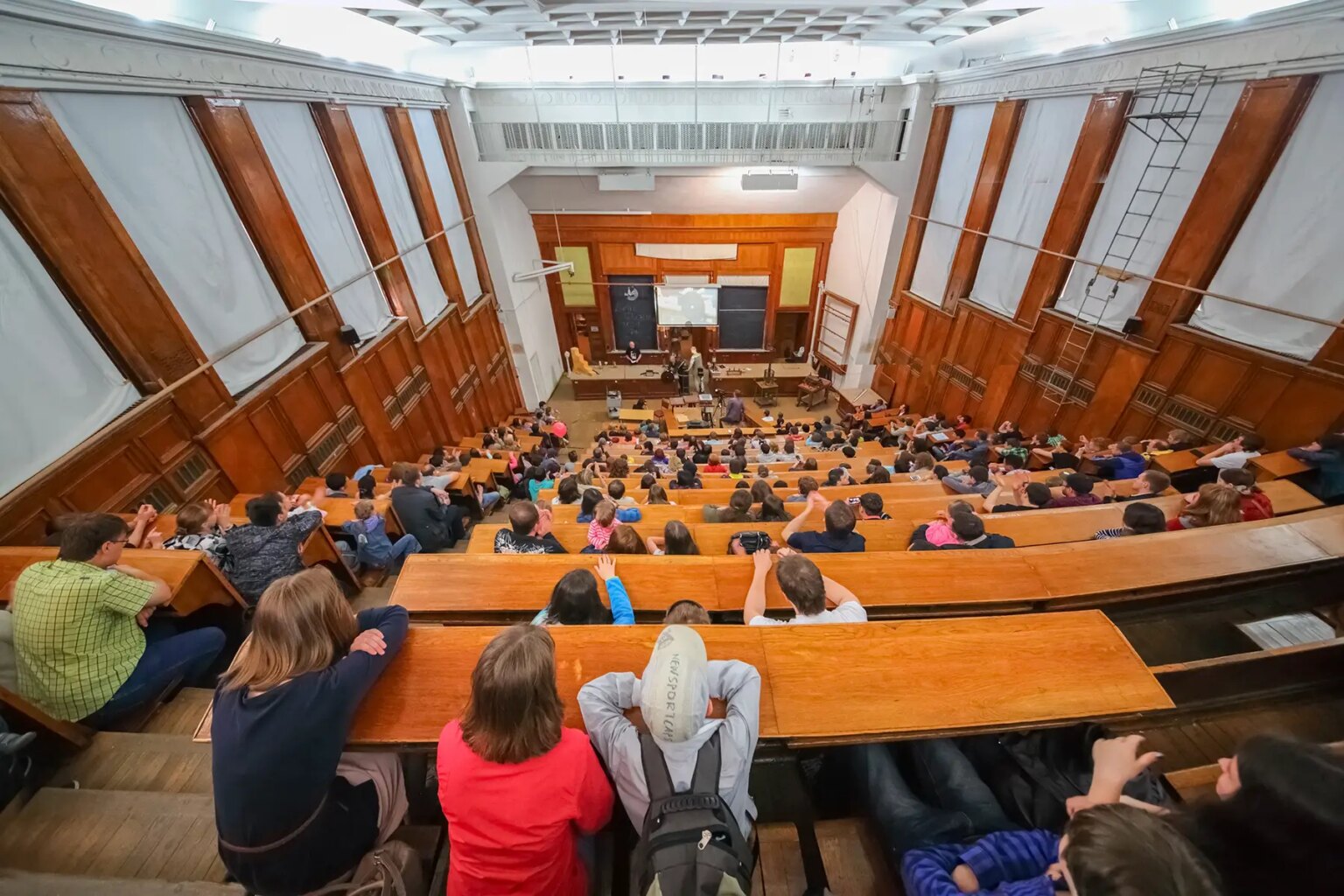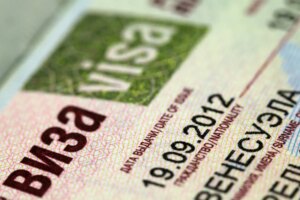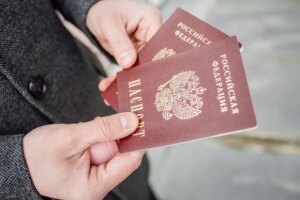Important notice from the Editor in Chief
Maintaining our Russian site is a delicate matter during the war. We have chosen to keep its content online to help our readers, but we cannot ensure that it is accurate and up to date. Our team endeavors to strike the right balance between giving information to those who need it, and respecting the gravity of the situation.
Most international students require a Russian student visa to come and study in Russia. In order to apply for a Russian student visa, you first need to have been accepted onto a course at a Russian college, university, or place of higher educational learning. There are also some restrictions if you wish to work while studying in Russia; in some cases, you need a Russian work permit first.
This guide to Russian student visas includes:
- Who needs a Russian student visa?
- Russian study visa requirements
- Preparing your Russian student visa application
- Russian student visa processing time
- Russian student visa application form
- Russian student visa costs
- After you arrive in Russia: mandatory registrations
- Working in Russia as a student
- Extending your Russian student visa
- Foreign graduates in Russia
- Family members of students in Russia
ReloAdvisor
Thinking about relocating to Russia? Make sure you start your Russian adventure on the right foot by checking out your options on ReloAdvisor. Compare quotes from some of the world's biggest relocation specialists and find the right option for you and your family. Start your new life right with ReloAdvisor.
Who needs a Russian student visa?
Citizens from most foreign countries will need a Russian student visa to study in Russia. Russia is not a member state of the EU/EFTA, so there is no visa-free entry to Russia for EU/EFTA citizens.
Citizens from the Commonwealth of Independent States (CIS) do not need a visa to study in Russia, nor do citizens of two partially-recognized states. These countries are:
- Abkhazia
- Armenia
- Azerbaijan
- Belarus
- Kazakhstan
- Kyrgyzstan
- Moldova
- South Ossetia
- Tajikistan
- Ukraine
- Uzbekistan
In 2015, citizens from these countries reportedly made up more than half of the 283,000 international students studying in Russia.
If you are a citizen of Armenia, Belarus, Kazakhstan, Kyrgyzstan, or Ukraine you don’t need a visa but you do need a valid passport. If you’re a citizen of Abkhazia, Azerbaijan, Moldova, South Ossetia, Tajikistan, or Uzbekistan you can come to Russia to study without a passport or visa.
Several other countries have visa-free arrangements with Russia for short stays of 14–90 days. Citizens of these countries can enter Russia without a visa but must sort out a Russian student visa from the Russian General Directorate of Migratory Affairs (GUVM) once in Russia. These agreements are usually for tourists with restrictions of up to three months. For longer courses, consider a Russian student visa instead. Even more information is in our guide to Russian visas and residence permits.
For those that require a Russian student visa
For citizens of countries that need a visa to enter Russia (which includes most EU/EFTA states), prospective students must get a Russian student visa before traveling to Russia. A Russian student visa is valid for 90 days but can be extended to a year and then renewed after that for the duration of the study. This visa is valid for study in any Russian college or university or for any short-term courses.
If you are doing postdoctoral research or attending seminars and require a visa to enter Russia, you can apply for a Humanitarian Visa. It is valid for up to a year for purposes relating to science or culture.
Russian student visas are first issued for three months. You then have to apply to the local division of the Federal Migration Service of the Russian Federation (FMS of Russia) to extend your visa. The FMS issues a multi-visa that allows you to enter Russia for one year. Before the visa expires, you must apply for an extension for a further year. You then continue in this way throughout your academic course.
Russian study visa requirements
You can start applying for a student visa up to 45 days before you plan to travel to Russia. You must apply through the Russian Embassy or consulate in your home country. There are also authorized visa centers in some countries: Austria, Belgium, Bulgaria, Canada, Czechia, Estonia, Denmark, Finland, France, Germany, Greece, Italy, Latvia, Lithuania, the Netherlands, Norway, Poland, Portugal, South Korea, Spain, Sweden, Switzerland, Türkiye, United Kingdom, and the United States. You may be denied entry into Russia on a student visa if you are HIV-positive.
The complete Russian student visa processing time can be lengthy, taking from two to five weeks to process the visa, besides the time required prior to that to secure a study placement and receive the necessary invitation to apply for a visa. The requirements and application processes can be broken down into the following stages.
Invitation letter to study in Russia
Before you can apply for a student visa, you first need an acceptance letter from a university. This allows you to get an official invitation to study in Russia. A list of Russian universities, colleges, and places of academic learning can be found here.
The Ministry of Foreign Affairs of Russia and the Federal Migration Service of Russia issue invitations. However, for most students getting places through the standard procedure or paying fees, the invitation will come from the university. Once you have an invitation, it is valid for three months.
Financing your Russian studies and scholarships
You will need to make sure you can cover your course and study costs in Russia. If you are looking to study at a state university in Russia or a university with state-funded places, you may be eligible for a government scholarship. There is also state funding available to students from CIS countries.
International scholarships are available from the Russian Ministry of Education and Science. They award 10,000 per year. If you win a place at a Russian university and receive a government scholarship, you get a six-digit number to use on your application.
Applying to study in Russia
You can apply to up to six Russian educational institutions (typically no more than two in each federal region). You may need to pass an exam, attend an interview, or undergo a selection process. This depends on where you are applying to and where you are from.
If you are successful and accepted onto a course, you then receive an invitation with which you can apply for a Russian student visa.
Preparing your Russian student visa application
To apply for your Russian student visa, visit the Russian embassy or consulate in your home country.
The documentation that you submit along with your Russian student visa application form varies. Generally, you need the following:
- passport or ID, valid for at least 18 months from the issue date of your visa and with at least two blank pages, plus a photocopy of the front page.
- one recent passport-sized photograph
- your official letter of invitation from the GUVM (original, not a copy)
- medical certificate less than three months old showing that you test negative for HIV. You may need to present the certificate in both Russian and your own language along with passport details, information on the duration of the stay in Russia, and details of the HIV test.
- An application form, which can be completed online but must be printed out.
- If you are under 18 years old, you must also have a consent document signed by your parents or legal guardians which has also been certified by a notary.
All foreign visitors to Russia must register at the local GUVM branch within seven days of arrival. If you are studying in Russia, your university usually does this for you. Failure to register with the GUVM can result in a fine and in some cases expulsion from Russia. A list of local GUVM offices is available here.
Your initial Russian student visa will generally be valid for 90 days. After arriving in Russia, you must arrange a Russian student visa extension through the GUVM to cover the duration of your studies, up to a maximum of three years.
Russian student visa processing time
Visas are usually issued within two to five weeks. Visa centers often offer a fast-track service for an additional fee. The cost will vary according to where you live, so contact the Russian Embassy consulate or visa center for confirmation.
Russian student visa application form
You will need to take a completed Russian student visa application form when visiting the Russian embassy or consulate. An electronic copy of the Russian student visa application form is available here. Fill it out online and print a copy to take with you.
Russian student visa costs
The Russian student visa costs vary from country to country.
This depends on whether the visa is single- or multiple-entry and whether you opt for standard or express service.
After you arrive in Russia: mandatory registrations
All foreigners entering Russia must complete a migration form. These forms are distributed on planes and trains and also before passport controls at airports and stations. As you pass through border controls, you’ll be handed a detachable portion of the form. This is your migration card and you’ll need to keep it until you leave Russia. It is valid for the duration of your stay. If you leave Russia you must complete a new form on your return. You’ll also need it to register with the Russian Federal Migration Service.
Like all foreign citizens, foreign students must register with the Russian Federal Migration Service within seven days of arrival. However, the university generally organizes this for you. You must go to the international student affairs department within three days of arriving in Russia. Take your passport or identity document, your visa, and your migration card. You’ll need both the originals and copies of these documents.
The university then gives you the migration card stamped by the Russian Federal Migration Service. This allows you to stay in Russia for three months and then for a year. Two weeks before it expires, you must contact the international student affairs department to get the document extended. There’s no charge for registering or extending the arrival document.
If you lose your migration card, you can apply for a free replacement from the Federal Migration Service if you apply within three days. The international student affairs department can help you with this.
Working in Russia as a student
If you have a Russian student visa, you require a work permit from the Federal Migration Service (FMS) unless this work is undertaken during the holidays or at the institution or organization where you are studying.
You will only be issued with a permit to work if you are a full-time student at a state-accredited university and at least 18 years old. The permit will only allow you to work in the field or profession set out in the permit and in the city or region of your university.
The cost of a work permit for those on a Russian study visa is RUB 3,500. Foreign nationals caught working in Russia without a valid permit risk a RUB 7,000 and potentially deportation from Russia.
It usually takes about 10 days to get a work permit from your regional Federal Migration Service (e.g., Moscow). You’ll need to submit the following documents:
- Your passport
- Your migration card
- Application form
- Your employment contract
- A medical certificate confirming your HIV-negative status, no infectious diseases or addiction to drugs
- Confirmation from the university that you are enrolled on a full-time course.
Russian work permits for foreign students are valid for one year and can be extended for the duration of the employment contract. You can change jobs during this time but you must inform the Migration Service. If you leave your university course, the work permit will be cancelled and you will no longer be able to work in Russia.
Read more in our guide to getting a Russian work visa.
Extending your Russian student visa
If you wish to continue your studies in Russia, you must extend your visa. If you stay in Russia with an expired visa, you risk a fine of between RUB 5,000 and 7,000 and possibly a five-year ban on entering Russia in the future. You should contact your university’s international office at least 30–40 days before your visa expires.
To extend your visa you will need:
- Your passport
- A completed application form
- A photograph
- A copy of your enrolment agreement or a referral from the Ministry of Education and Science of the Russian Federation
- A letter setting out the reason you need the visa extended
- Migration card (original and copy)
- The detachable section of the arrival notification form
- Fee (RUB 1,600 in 2017).
Foreign graduates in Russia
After finishing your studies, you may be able to stay in Russia if you have been offered a job or if you want to look for work or start a business. But in practice, this is complex as it is not possible to change from one Russian visa type to another inside the country. This means that you may need to exit Russia and re-enter on another suitable visa, which means securing an invitation from the GUVM via an employer or suitable organization.
If you have been living in Russia for more than a year, you may be eligible to apply for permanent residence in Russia, which will give you the right to look for work without needing a visa or permit. Read more in our guide to Russian citizenship and permanent residence.
If you are intending to stay in Russia after your Russian student visa expires, it is advisable to visit your local GUVM branch to make inquiries and the necessary arrangements. A list of local GUVM offices is available here. You must do this with plenty of time before your Russian student visa expires.
The Russian authorities are quite strict when it comes to foreign residents overstaying their visa. If you are caught without a valid visa, you risk a hefty fine and possible deportation from Russia. If you try to leave more than three days after your Russian student visa expiry date you will have to pay for a separate exit visa.
For information on different visa types, see our complete guide to Russian visas and permits.
Family members of students in Russia
The Russian student visa is one of the visa types that allow you to be accompanied by certain family members. The family member(s) will need an invite or be included on your invite from the GUVM and will be subject to standard Russian visa costs. See our guide to joining a relative or partner in Russia for more information.




